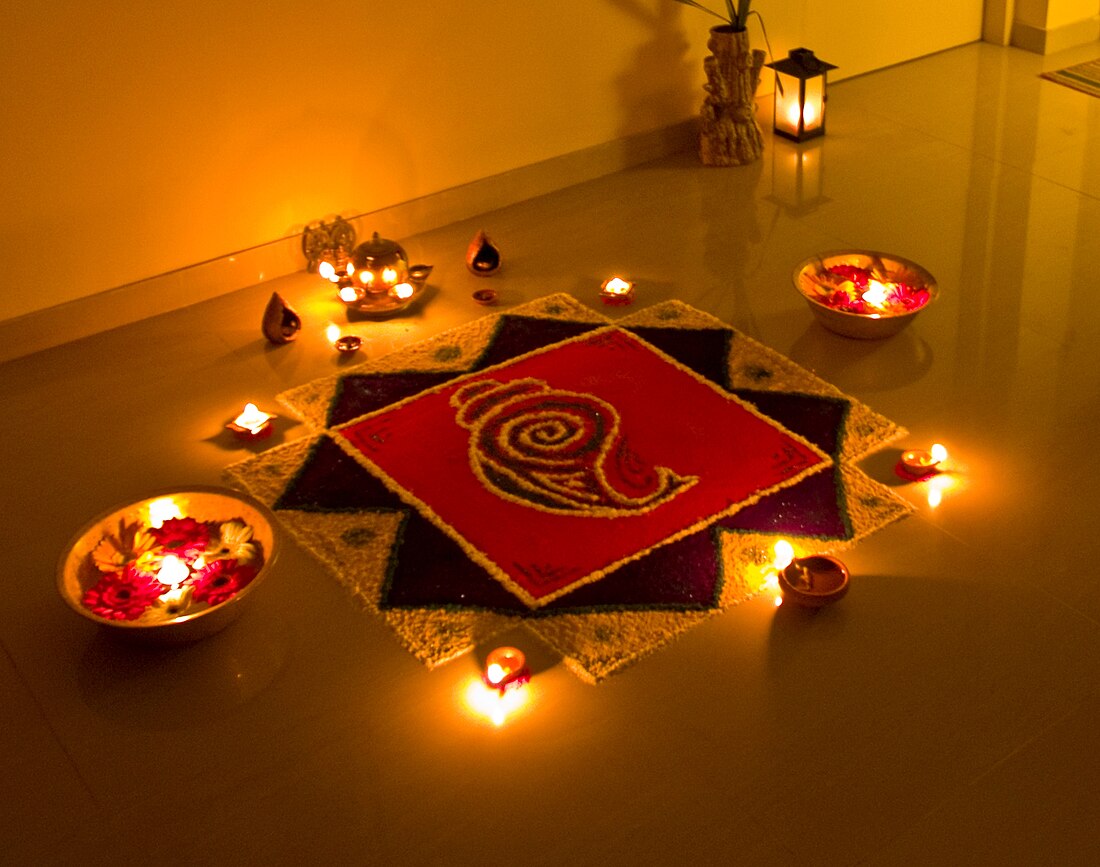Diwali
Hindu, Jain, Sikh, Buddhist and South Asian festival of lights From Wikipedia, the free encyclopedia
Remove ads
Diwali (also: Deepawali)[2] is one of India's biggest festivals. The word 'Deepawali' means rows of lighted lamps. It is a Festival of Lights, and Hindus celebrate it with joy.[3] It marks the beginning of a new year.
Diwali is one of the most important festivals in Hinduism. It comes on Amavasya in the month of Kartik.
Dipavali (IAST: Dīpāvalī),[a] commonly known as Diwali (/dɪˈwɑːliː/),[4] is the Hindu festival of lights, with variations celebrated in other Indian religions such as Jainism and Sikhism.[b] It symbolises the spiritual victory of Dharma over Adharma, light over darkness, good over evil, and knowledge over ignorance.[5][6][7][page needed][8] Diwali is celebrated during the Hindu lunisolar months of Ashvin (according to the amanta tradition) and Kārtika – between around mid-September and mid-November.[9][10][11][12][13] The celebrations generally last five or six days.[14][15][4]
Remove ads
Celebrations
During this festival, people light up their houses and shops with small cup-shaped oil lamps made of baked clay. They worship the Lord Ganesha and Goddess Lakshmi for welfare and prosperity. People clean and decorate their houses before the festival. They make colorful rangoli art on floors with rice and flowers.
Deepawali is celebrated in India and is a public holiday there. Shops, school, offices and temples are thoroughly cleaned, whitewashed and decorated with lights, flowers and oil lamps. Hindus believe that, on this day, Lakshmi enters houses which are neat and tidy. They leave the lights on in their homes to welcome Lakshmi with happiness.
At night, buildings are illuminated with earthen lamps, candles and lights.
On the day of Deepawali, people wear new clothes and exchange greetings, gifts and sweets with their loved ones. People buy sweets for their families and also send them as presents to their friends and relatives. Others prepare lots of sweets with their oil. People light diyas and burn crackers.
The Goddess Lakshmi is also worshiped in the form of silver coins. People offer prayers for their own health, wealth and prosperity.
Remove ads
References
Other websites
Wikiwand - on
Seamless Wikipedia browsing. On steroids.
Remove ads

